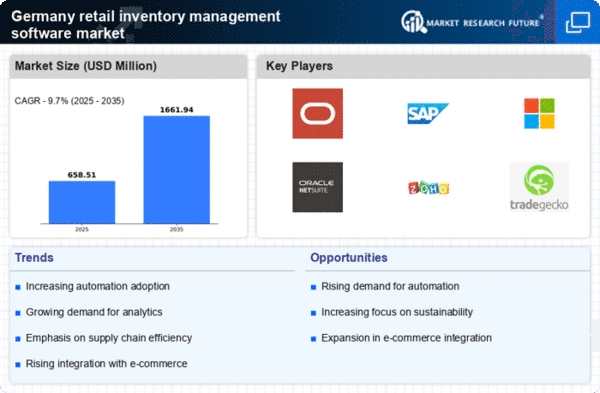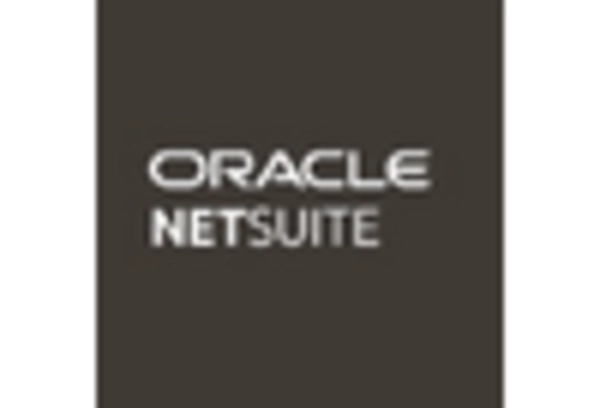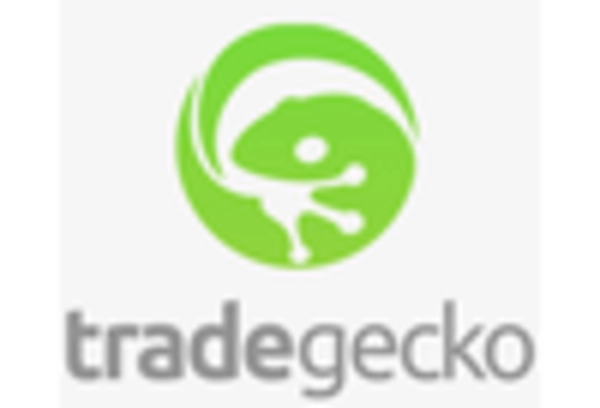Growth of Omnichannel Retailing
The retail inventory-management-software market in Germany is significantly influenced by the growth of omnichannel retailing strategies. Retailers are increasingly adopting a multi-channel approach to meet the evolving preferences of consumers who expect a seamless shopping experience across various platforms. This shift necessitates sophisticated inventory management solutions that can synchronize stock levels across physical stores, online platforms, and mobile applications. Recent statistics indicate that over 60% of German retailers are investing in integrated inventory systems to support their omnichannel strategies. Such investments are likely to drive innovation within the retail inventory-management-software market, as companies seek to enhance their capabilities in managing inventory across diverse sales channels.
Emphasis on Cost Reduction and Efficiency
Cost reduction remains a pivotal driver for the retail inventory-management-software market in Germany. Retailers are under constant pressure to optimize their operations and reduce overhead costs. The implementation of advanced inventory management software can lead to significant savings by streamlining processes and minimizing waste. Data suggests that retailers utilizing sophisticated inventory solutions can achieve up to 30% reductions in operational costs. This focus on efficiency not only enhances profitability but also allows retailers to allocate resources more effectively. Consequently, the demand for innovative inventory-management software that supports cost-effective operations is likely to grow, further propelling the retail inventory-management-software market in Germany.
Rising Demand for Real-Time Inventory Tracking
The retail inventory-management-software market in Germany experiences a notable surge in demand for real-time inventory tracking solutions. Retailers increasingly recognize the necessity of maintaining accurate stock levels to enhance customer satisfaction and operational efficiency. According to recent data, approximately 70% of retailers in Germany prioritize real-time visibility in their inventory systems. This trend is driven by the need to minimize stockouts and overstock situations, which can lead to lost sales and increased holding costs. As a result, software providers are focusing on developing advanced tracking features that integrate seamlessly with existing systems. The emphasis on real-time data not only aids in decision-making but also fosters a more agile supply chain, ultimately benefiting the retail inventory-management-software market in Germany.
Technological Advancements in Software Solutions
Technological advancements play a crucial role in shaping the retail inventory-management-software market in Germany. The integration of artificial intelligence (AI) and machine learning (ML) into inventory systems is becoming increasingly prevalent. These technologies enable retailers to forecast demand more accurately, optimize stock levels, and automate various inventory processes. As a result, retailers are more inclined to invest in cutting-edge software solutions that leverage these technologies. Recent surveys indicate that approximately 55% of German retailers are exploring AI-driven inventory management tools. This trend suggests a shift towards more intelligent systems that can adapt to changing market conditions, thereby enhancing the overall efficiency of the retail inventory-management-software market.
Regulatory Compliance and Sustainability Initiatives
The retail inventory-management-software market in Germany is also influenced by regulatory compliance and sustainability initiatives. As environmental concerns gain prominence, retailers are increasingly required to adhere to regulations that promote sustainable practices. This has led to a growing demand for inventory management solutions that facilitate compliance with environmental standards and support sustainable sourcing. Data indicates that around 40% of retailers in Germany are prioritizing sustainability in their inventory management strategies. Consequently, software providers are developing features that enable retailers to track the sustainability of their supply chains, thereby enhancing their appeal in the retail inventory-management-software market.
















